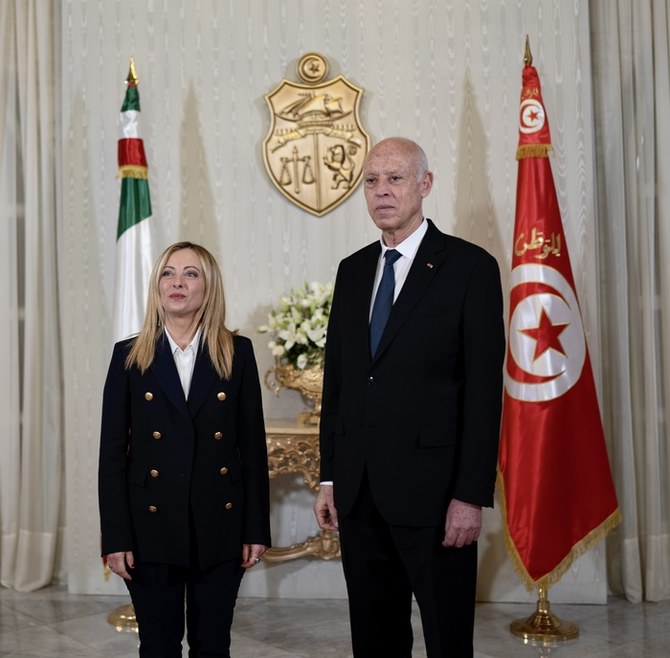The prime minister faces the challenge of governing despite the press, the establishment, and the allegedly loyal opposition in Italy being united in their zeal to topple her.
Edmund Kean was mistaken. Dying may be easy, but it’s governance that is hard — especially when the press, the establishment, and the allegedly loyal opposition in Italy are united in their zeal to topple Giorgia Meloni.
Such brazen partisanship would be risible if it were a prime-time political soap opera — think Veep by way of Dynasty. However, Rome’s affairs of state are not the stuff of comedy.

financial aid to that country to stem illegal migration.
While the sausage-making of politics can be distasteful, transparency in policy-making remains essential in a constitutional republic. That has been Prime Minister Meloni’s strong suit.
In an effort to curb the inflationary spiral that would undoubtedly occur under the much-ballyhooed Citizens’ Income, or Reddito di Cittadinanza, the prime minister has opted instead to give debit cards to 1.3 million families with a yearly income of up €15,000.
The theory is that by making purchases in the marketplace, those families would be spurring producers to supply more, stimulating job creation. While this might not ring true to supply-side purists, as of May, Italy’s unemployment rate dipped to 7.6 percent, which is lower than the market prediction of 7.9 percent. This is the lowest level of joblessness since Covid upended the labor market in April 2020.
The number of unemployed individuals decreased by 34,000 to 1.935 million — the sharpest reduction since February 2022. Meanwhile, the number of employed individuals increased by 21,000 to 23.5 million.
Yet much more needs to be accomplished — specifically in the realm of wages.
After adjusting for inflation and purchasing power, the Wall Street Journal reported, based on data of the Organization for Economic Cooperation and Development, “wages have declined by about 3 percent since 2019 in Germany, by 3.5 percent in Italy and Spain and by 6 percent in Greece.”
Foreign Minister Antonio Tajani recently ignited criticism when he characterized a proposal introducing the minimum wage to Italy as a Soviet-style maneuver. Mr. Tajani was echoing Friedrich Hayek, who raised concerns about “the process by which an apparatus originally meant to relieve poverty is generally being turned into a tool of egalitarian redistribution.”
The Nobel-winning Hayek added that “the welfare state,” [by] “socializing income, of creating a sort of household state which allocates benefits in money or in kind to those who are thought to be most deserving,” [has] “for many become the substitute for old-fashioned socialism.”
Signora Meloni is opposed to any such “egalitarian redistribution.” Though La Repubblica reports that she is amenable to a “cautious opening” on the issue with a leading leftist in the parliament, Elly Schlein, the prime minister will remind the Secretary of the Partito Democratico that a statutory minimum wage would be a non-starter; Italy has an extensive system of national collective bargaining agreements in place.
Reducing labor taxes and strengthening contracts would be more effective overall. A minimum wage could act as a disincentive to hiring, increasing unemployment among the less-skilled workers it was intended to help
Higher economic growth is the sine qua non of the Meloni Administration. The president of the Council of Ministers has boasted of Italy’s 3.7 percent growth rate in 2022. Yet Signora Meloni’s task has become increasingly complicated by the European Union’s Post-Covid Recovery and Resilience Plan, which was hailed as a boon for Italy.
The plan promised to revamp, rebuild and streamline the EU economies in the wake of the pandemic. Rome was set to receive €191.5 billion, the largest apportionment. An economics professor at Milan’s Bocconi University, Roberto Perotti, contends that “It was doomed from the start. We were unable to decide on sensible projects and we are unable to spend the money on the ones that have been agreed.”
Professor Perotti maintains that Italy’s spending plans were inadequately aligned with the actual funds allotted. Yet domestic press outlets and ones throughout Europe piled on, citing Italy’s “elephantine” and “byzantine” bureaucracy.
Yes, delays in coordination can be attributed to snafus in a complex and confounding welter of national, regional and municipal bureaucracies. Yet Ms. Meloni’s Italy is not an authoritarian state.
The prime minister cannot act with the impunity of, say, President Erdogan, who is essentially a sultan. Even President Macron has more sway over French regions from his Jupiterian perch.
Ultimately, the post-Covid recovery plan needs to be reworked, and Ms. Meloni vows to do so by August 2023. As she has stated, the plan “was born in a historical period different from the current one. Russia’s war against Ukraine, and the energy, economic and social shocks that followed, have brought out new priorities that need to be taken into account and the consequent need to update the Plan.”
Signora Meloni has responded with a sure-footedness that unbiased observers would consider admirable. Thanks to her persistence, the leaders of the Netherlands, the European Commission and Italy have agreed — albeit, at the moment, merely in principle — to grant $1.1 billion in financial aid to help Tunisia’s revivify its floundering economy — thereby restoring order to the North African nation and stemming the illicit migration across the Mediterranean.
At the onset of Ms. Meloni’s administration, no one would have predicted that the conservative leader would join a liberal European Commission president, Ursula von der Leyen, and a populist Dutch premier, Mark Rutte, in achieving an international modus vivendi to safeguard Europe’s borders. Governance may be hard work, but it can be rewarding. -RAI

Recent Comments